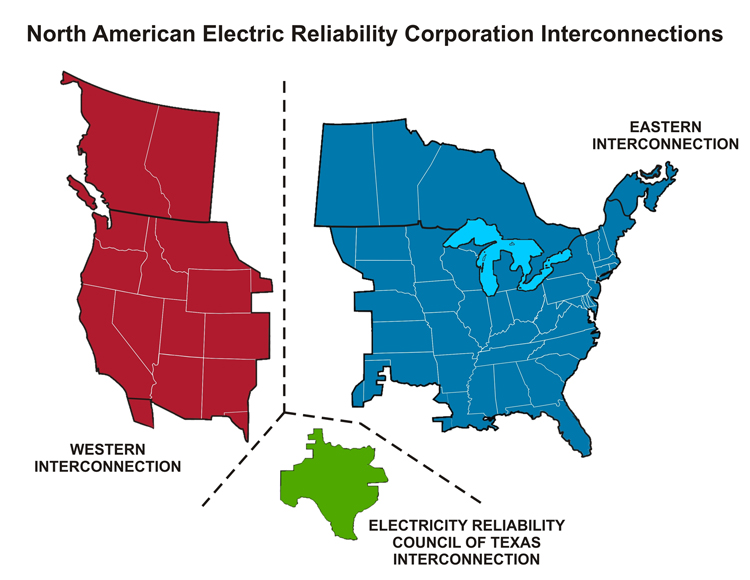UCLA Files Amicus Brief on Behalf of Electric Grid Experts in “Clean Power Plan” Case
Supporting EPA’s regulation of power-sector carbon emissions
Today, several of us at UCLA Law School’s Emmett Institute on Climate Change and the Environment—me, Cara Horowitz, Sarah Duffy, & Ann Carlson—together with Professor William Boyd of University of Colorado Law School, filed an amici curiae brief on behalf of five electric grid experts in support of the U.S. Environmental Protection Agency’s “Clean Power Plan” to regulate carbon dioxide emissions from existing fossil-fuel-fired electric generating units under the Clean Air Act.
The Clean Power Plan (80 Fed. Reg. 64,662) calculates reasonably achievable performance rates for existing fossil-fuel-fired power plants across the country, and assigns an emission-reduction target for each state based on the composition of the state’s power plant fleet. Each state must develop a plan for how to reach its target by 2030. State plans can include a wide variety of flexible compliance measures, such as plant efficiency improvements, adding new renewable energy generation, improving consumer-side energy efficiency, and participating in an emissions trading system.
EPA projects that implementation of the Clean Power Plan will reduce carbon pollution from the power sector 32% below 2005 levels. The rule is an essential piece of the overall U.S. climate agenda—and the United States’ international climate commitments—because the power sector is the largest source of U.S. carbon dioxide emissions.
The litigation over the Clean Power Plan, West Virginia et al. v. EPA (D.C. Cir. No. 15-1363), is the biggest environmental law case in U.S. history in terms of the volume of parties, and also one of the most important climate change cases of all time. The D.C. Circuit will hear challenges from state and industry petitioners alleging that EPA does not have authority to regulate existing power plants under Clean Air Act § 111(d), and regardless, that in designing such regulations, EPA should not consider emissions reductions that could be achieved by shifting generation from carbon-intensive sources such as coal to lower-carbon renewable energy and natural gas sources. Petitioners further claim that the Clean Power Plan is unconstitutional because it infringes on state authority to regulate the power sector.
The Grid Experts’ amicus brief argues that the Clean Power Plan respects and effectively harnesses the unique features of the electric grid and is consistent with the twin aims of the grid: power reliability and affordability for all consumers. In particular, the brief seeks to aid the D.C. Circuit Court in understanding the unique physical features of electricity and the electric grid, and the relevance of those features to the Clean Power Plan.
The Grid Experts who participated in the brief include: Dr. Benjamin F. Hobbs (Johns Hopkins), Brendan Kirby, P.E. (Electric Power System Consulting), Professor Kenneth J. Lutz (Univ. Delaware/AMR Strategies), Dr. James D. McCalley (Iowa State Univ.), and Brian Parsons (Western Grid Group/NREL ret.).

In response to opponents’ claims that the Clean Power Plan will disrupt traditional grid operations and power reliability, the Grid Experts offer perspective on grid management, maintenance of electric reliability, and how the power system responds to pollution controls like the Clean Power Plan. Overall, the brief highlights for the court that the power sector is structured as three regional interconnected grids, each of which operates harmoniously as a single machine. Thus, Petitioners’ calls for EPA to look only to “technological pollution controls,” rather than generation shifting, make no sense.
As stated in the brief, Grid Expert Amici emphasize two key points:
First, shifting generation among various sources is characteristic of routine grid operations, and is a long-used method to reduce harmful emissions. All grid operators use the basic principles of “Constrained Least-Cost Dispatch”—utilizing the lowest-cost generators first, unless operational needs take precedence—to balance supply and demand. All power-sector environmental regulations affect the relative costs of different generators, just as changing fuel prices, generator efficiency, and other variables do; consequently, all power-sector environmental regulations result in relatively greater use of some generators than others. While the [Clean Power Plan] may alter the relative costs of various generators, it does not change the framework that has long guided grid operations. The Rule will integrate seamlessly into existing Constrained Least-Cost Dispatch processes with no adverse reliability impacts.
Second, shifting from higher-emitting to lower-emitting generation is a well-demonstrated, cost-effective method to reduce CO2 emissions. EPA recognized this in determining that the “best system of emission reduction” … for power-sector CO2 includes reducing coal generation and increasing natural gas and renewable energy generation…. Because all generators deliver undifferentiated power to a regional grid that operates as a single machine, it would make no sense for the Rule to consider only CO2 emissions reductions that could be achieved through technologies installed within the ephemeral boundaries of individual facilities.
Oral argument is scheduled for June 2, 2016.
Reader Comments
One Reply to “UCLA Files Amicus Brief on Behalf of Electric Grid Experts in “Clean Power Plan” Case”
Comments are closed.







I represent a group of frontline communities under seige by gas infrastructure and we are opposed to the CPP which we feel is an affirmative action program for the natural gas industry. I am really sorry that UCLA an academic institution with a history of supporting progresssive causes has allowed itself to be used this way to advance the interest of a harmful industry. The science is clear natural gas (methane, its real name) is worse for the climate and worse for public health than any other energy source. If it wants to maintain academic integrity I suggest that rather than serving the interest of the gas industry, it instead withdra this amicis brief, and help the hundreds of thousands of citizens around the country being harmed by fracked gas infrastructure.